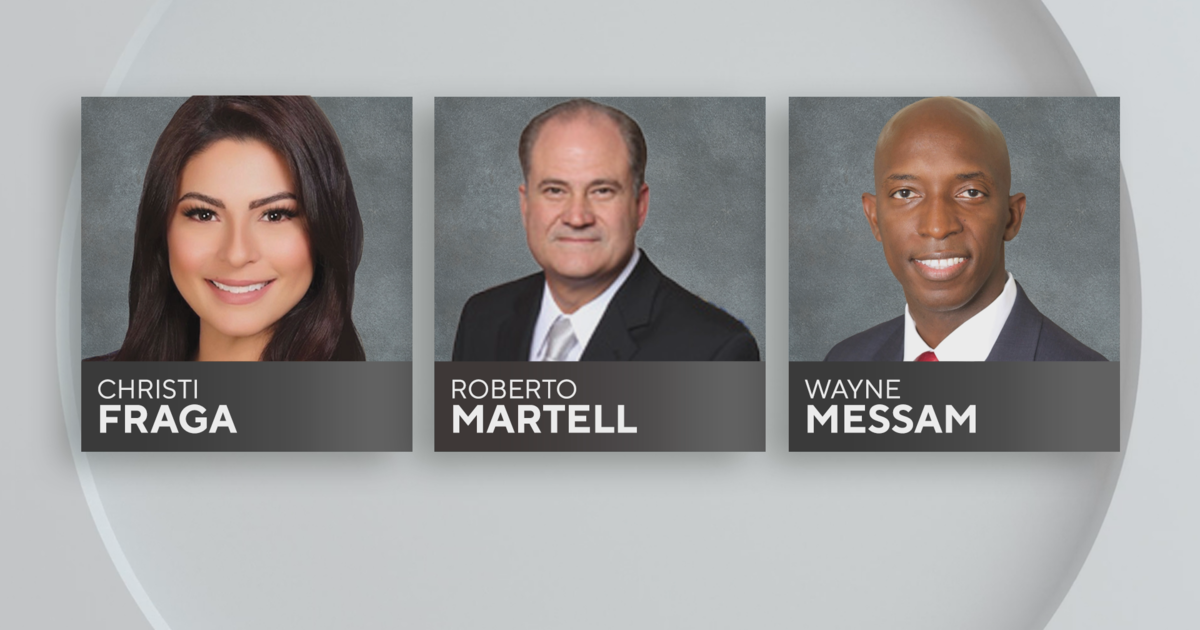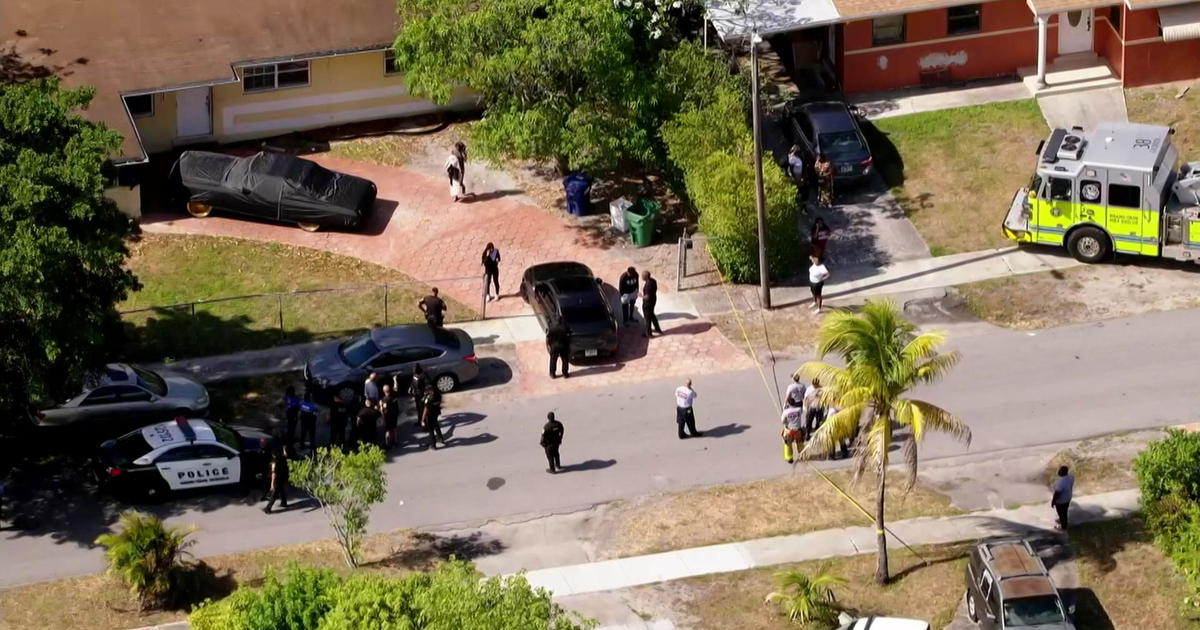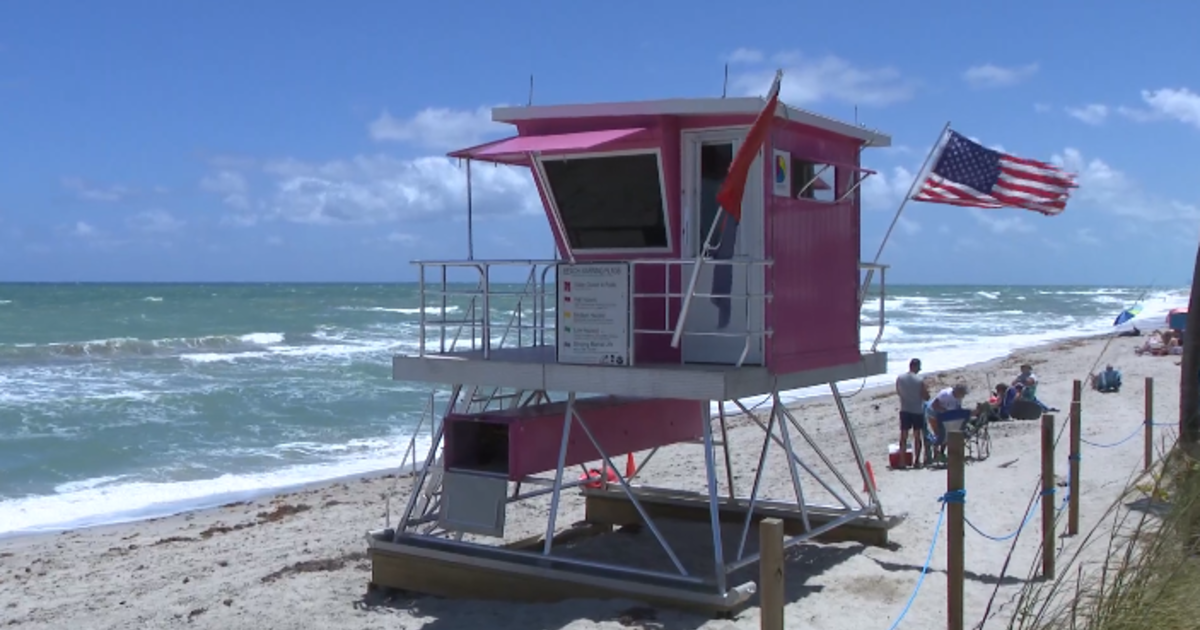Police Use of Social Media Expanding & It's Raising New Concerns
Follow CBSMIAMI.COM: Facebook | Twitter
MIAMI (CBSMiami) – During the mayhem of last month's "Wheels Up, Guns Down" biker protests, a rider used his cellphone to document his escape from Hollywood police.
Laughing throughout the video, the rider must have seen this as a real achievement and later proudly posted it on Instagram for his friends to view his triumph.
Unfortunately, it wasn't just his friends who saw the post. One of the officers chasing him noticed he was taking video and searched social media. Once he found it, he was able to identify the rider as Wilfredo Garcia of New York. A warrant was issued and the NYPD picked up Garcia and extradited him to Broward.
"Social media has become a new tool for law enforcement as people like to brag about crimes that they are doing," noted Hollywood Police Chief Tomas Sanchez.
In 2015, the International Association of Chiefs of Police conducted a survey of more than 400 police agencies and found that 96% percent of them used social media in some capacity, including over half for listening or monitoring and three-quarters for intelligence gathering purposes.
"You'd be surprised how easy sometimes it is because these bad guys go on those venues to show off what they've done, what they did," said Major Jorge Martin, who oversees the Miami Police Department's Special Investigations Section. "They want to tell their friends. They want to show the goods, literally."
Martin's analysts and detectives tap into social media as part of gang and narcotics investigations. In one instance, when a drug dealer showed all of the hundred dollars bills he received in a drug deal. What he didn't realize was that before making the deal with undercover officers, they had written down all of the serial numbers and police now had additional proof he had the money.
Martin took CBS4 News into a restricted area on the second floor of police headquarters. It was a rare look behind the scenes as most police agencies are reluctant to show this side of their operation. Even Martinez was hesitant.
"I don't want to be the one that gives that trade secret away," he said. But, he admitted, "I'd be less than truthful to you or to the viewing public to tell you that we don't incorporate the use of social media to help us – absolutely. There are just different ways that we do things, there are different guidelines that we have to abide by."
While most of what police do involves open sources that just about anyone can easily see or read, there are high-tech security companies like Geofeedia and Snaptrends that market their services to police departments across the country with technology that some believe cross the line into spying.
The technology is so advanced it allows police to focus their lenses on an entire city or drill down to a neighborhood or even a city block to examine Twitter, Instagram and Facebook posts in that area. CBS4 News has learned the Florida Department of Law Enforcement, and a half a dozen departments in South Florida use Snaptrends, including the City of Miami.
"I'll say it's within the tool box – an item that we use like Facebook and everything else," he said. "It's an evolving technology."
Asked if he worried about the Big Brother aspect to all of this technology, he replied, "Me, myself, no. I personally would want all of the investigative advantages I could get. The bad guys I'm going after may want to worry about if, but for me, bring on the technology."
It's not just criminal activity. Social media is being used by police to anticipate demonstrations and track protesters and protest leaders.
"It's just to make sure it is an orderly event that we want to get numbers on because that's a public safety concern," he said.
Late last year, the ACLU and the Brennan Center for Social Justice issued reports questioning the use of Snaptrends and Geofeedia by police. As a result, Twitter and Facebook are now blocking those companies from accessing their information, rendering them largely useless to police. But other companies may take their place, which means these issues are not going away.



